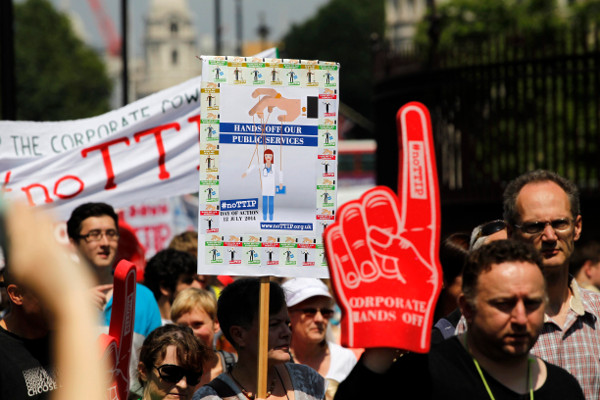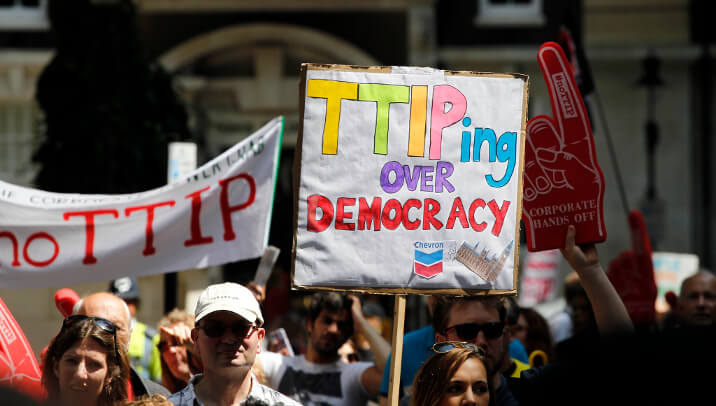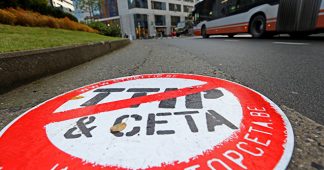Translated by Wayne Hall
THE BATTLE OVER CETA IS FAR FROM OVER, by François Leclerc
No more than two days were needed for the CETA text, only just signed in front of the cameras, to be rejected again. The German Greens announced their intention of blocking its ratification, in its present form, in the Bundesrat, something that is within their capacities given the way that its system functions. Is the participation of the Bundesrat indispensable for ratification of the treaty? German jurists are working on this question, and it is thorny.
The Greens have lined up with the Walloons and demand that there should be provisions, in the event of disagreement between the investors, for an appeal to the established juridical system and to intervention by professional judges applying existing laws. This question will certainly provide a focus for the ratification of the Treaty at the heart of the European Union, something requiring years, during which the arrangements initially intended in this connection will not be able to be implemented. The issue is not under the jurisdiction of the Commission, which conducted negotiations on the basis of a confidential and inaccessible mandate. Along with the brilliant idea of confronting parliaments with the choice of all or nothing at the moment of ratification. They succeeded in this.
In the meantime voices have been heard regretting that provision was made for such a formality and suggesting that it should be abolished. But what government could now take such a proposal on board ? In its present form the CETA treaty with Canada has no future, and TTIP with the United States even less. It is a blessed first blow against the liberal contract. Not everything is permitted after all.
This being so, in quite another area – that of the association agreement between the European Union and Ukraine – the Netherlands are similarly erecting obstacles to its final ratification, following the victory of NO at the referendum that now necessitates parliamentary confirmation. The government is chasing after an impossible majority in the two houses of parliament. A formula similar to the one that has prevailed in Belgium could be employed in the form of declaration by the Council of Europe – to be adopted during the coming December summit – which could be attached to the accord proper and would give assurances permitting its ratification. It would not be a prelude to Ukraine joining the European Union, would not imply military or financial aid and would not involve permission for Ukrainians to work in the EU.
Many of the essential decisions have been delegated to the European Central Bank and the Commission, who have it in common that they are not elected. Will this stratagem have continuity and be amplified or will parliaments again be given a voice. In these times of political crisis, a time when the requisite majorities are impossible to find, the question is important. To brush aside the last democratic rules necessitating the attainment of parliamentary majorities, all so as give carte blanche to liberal policies… is undeniably tempting. All that remains is to find the mechanisms for imposing it. The campaign against the judicial system did not go well.











